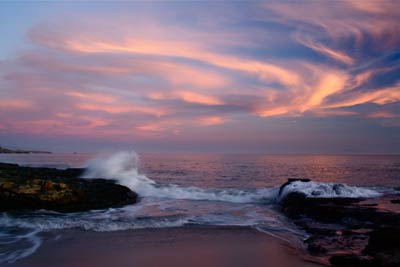All Nonfiction
- Bullying
- Books
- Academic
- Author Interviews
- Celebrity interviews
- College Articles
- College Essays
- Educator of the Year
- Heroes
- Interviews
- Memoir
- Personal Experience
- Sports
- Travel & Culture
All Opinions
- Bullying
- Current Events / Politics
- Discrimination
- Drugs / Alcohol / Smoking
- Entertainment / Celebrities
- Environment
- Love / Relationships
- Movies / Music / TV
- Pop Culture / Trends
- School / College
- Social Issues / Civics
- Spirituality / Religion
- Sports / Hobbies
All Hot Topics
- Bullying
- Community Service
- Environment
- Health
- Letters to the Editor
- Pride & Prejudice
- What Matters
- Back
Summer Guide
- Program Links
- Program Reviews
- Back
College Guide
- College Links
- College Reviews
- College Essays
- College Articles
- Back
Animals Need a Voice
As displayed in the 2013 documentary, “Blackfish,” animals have been constantly mistreated by humans, taken from their natural habitat in the ocean, away from their families and put into a pool for the public’s entertainment. The film depicts the mistreatment of orcas at Seaworld located in San Diego. Using the animals for marine park shows and keeping them in small confined spaces for years has caused them to lash out at trainers and even resulted in injuries and a few deaths. Establishing an animal Bill of Rights can solve many problems regarding animals in aquatic parks.
I believe animals should be given a Bill of Rights. This will demonstrate our care and concern about animals to Congress and how they should be protected and treated with respect. It is important that we give cetacean animals a voice by establishing this Bill. The United States Bill of Rights that we use in our government lists amendments of privileges and laws which restrict us, yet also give advantages to us as citizens. Providing legal protection to animal marine parks will create a safe environment for the animals, trainers, and audience. The owners of the parks will be restricted in committing immoral actions such as, kidnapping and separating baby orcas away from its family. “Blackfish” opened my eyes to how
Seaworld treats their animals. How animals are unable to fight back against the marine park workers. Making an animal Bill of Rights will help give them a voice. We as human are technically animals, and to put ourselves in the position of a captured orca living at Seaworld and not being given these rights is the same as taking away our rights as humans. Animals are being mistreated in these parks by being enclosed in small spaces, taken away from their natural habitat in the ocean, end up having shorter life spans in the parks, and may develop collapsed dorsal fins which are a sign of poor health. “Trainers sometimes withhold food from dolphins and orcas in order to force them to learn and perform tricks.” According to the “Last Chance for Animals” article, orcas are being given consequences for not performing a trick that their not even designed to do. This may cause orcas to build aggression and lash out at their trainers.
According to Kayla Patama’s research in NOVA Capstone, she states “the perceived abuse of power that humans have over their animal ‘prisoners’.” Explaining how aquatic parks use the animals as a source of entertainment to bring in more business creating a source of power and control they have over these animals, captivating them as Seaworlds ‘prisoners.’ In a Marine Zoological Park survey, 72% of people believe that marine parks provide a safe and secure environment for wildlife. This goes to show how little society knows about the dangers and misbehaving treatment that these animals endure while being held captive in these parks.
In a Britannica article, the author, Brian Duignan mentions the term ‘speciesism’ which means to discriminate against animals in favor of humans. Duignan compares speciesism to racism, sexism, and prejudice. Discriminating against animals and taking away their rights is like discriminating the modern issues in society such as, race and sex. The marine parks are choosing to satisfy the entertainment of the people instead of taking care of the animals so they are healthy and comfortable. A Bill of Rights for animals will benefit them by providing a voice and eliminating any mistreatment towards the animals. This would entitle animals “to be free from exploitation, cruelty, neglect, and abuse” and “wildlife to a natural habitat, ecologically sufficient to a normal existence and self-sustaining species population” listed in a Care2 article.
Animals don’t deserve to be treated unfairly. Providing an animal Bill of Rights prohibits any marine parks from behaving cruelly to the cetaceans. It will allow animals to live their life in a healthy environment in a way that replicates their natural habitat, so they can feel free and happy.

Similar Articles
JOIN THE DISCUSSION
This article has 0 comments.

This piece is an op-ed response about the Blackfish documentary and how animal park cetaceans should be given a bill of rights.